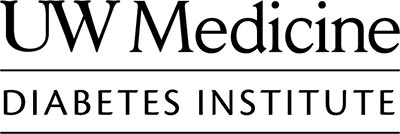Research
Dr. Rubinow’s work is dedicated to better understanding the metabolic effects of nuclear receptor ligands including sex steroids and retinoic acid. Obesity, insulin resistance, and type 2 diabetes are all characterized by altered circulating levels of estrogens and androgens in both men and women. Further, sex steroid deprivation increasingly is recognized as an important risk factor for the development of metabolic disease. Thus, either excessive or inadequate exposure to sex steroids can promote metabolic dysregulation, but the mechanisms by which changes in sex steroid exposure contribute to obesity and diabetes remain poorly understood. Dr. Rubinow’s research is focused on the ways in which sex steroid exposure influences facets of cardiometabolic health including body composition, insulin resistance, and lipoprotein metabolism. Her research efforts include clinical studies examining the effects of perimenopausal estrogen replacement therapy on HDL composition and function and the impact of androgen deprivation therapy on hypothalamic gliosis in men with prostate cancer. In collaboration with Dr. Nina Isoherranen, PhD, she is also investigating obesity-associated changes in systemic vitamin A metabolism.
News
- Appointed to Associate Director, UWMDI Clinical Research Unit, 2020
- UWMC Patient Reported Assessment in Doctor Satisfaction and Excellence (PRAISE) Award recipient, 2017-2020
- Appointed to Adjunct Associate Professor of Pharmaceutics, 2019
- Poster presentation, American Heart Association Vascular Discovery meeting, 2019
Recent Publications
- Averill M* and Rubinow KB*, Cain K, Wimberger J, Babenko I, Becker J, Foster-Schubert K, Cummings D, Hoofnagle AN, Vaisar T. (2020) Post-prandial remodeling of HDL following high fat and high carbohydrate meals. J Clin Lipidol 14(1):66-76.e11. *co-first authors PMCID: PMC7085425 [original work]
- Rubinow KB, den Hartigh LJ, Goodspeed L, Wang S, and Oz OK. (2020) Aromatase deficiency in hematopoietic cells improves glucose tolerance in male mice through skeletal muscle-specific effects. PLoS One 15(1):e0227830. PMCID: PMC6977739 [original work]
- Dinh K, Amory JK, Matsumoto A, Marck, B, Fujimoto W, Leonetti D, Boyko E, Page ST, and Rubinow KB. (2020) Longitudinal changes in plasma sex hormone concentrations correlate with changes in CT-measured regional adiposity among Japanese American men over 10 years. Clin Endocrinol (Oxf) 93(5):555-563. [original work]
- Vaisar T, Gordon JL, Wimberger J, Rubinow DR, Girdler SS, and Rubinow KB. (2021) Perimenopausal Transdermal Estradiol Replacement Therapy Reduces Serum High-density Lipoprotein Cholesterol Efflux Capacity but Improves Cardiovascular Risk Factors. J Clin Lipidol 15(1):151-161. PMCID: 7887026 [original work]
- Chait A, Wang S, Goodspeed L, Gomes D, Turk KE, Wietecha T, Storey C, O’Brien KD, Rubinow KB, Tang C, Gharib SA, Lusis AJ, den Hartigh LJ. (2021) Sexually dimorphic relationship among serum amyloid A3, inflammation, and macrophages modulates atherosclerosis in mice. Arterioscler Thromb Vasc Biol (accepted for publication) [original work]
- Hanson AJ and Rubinow KB. (2021) Optimizing Clinical Phenotyping to Better Delineate the Complex Relationship between Type 2 Diabetes and Alzheimer’s Disease. Clin Transl Sci (accepted for publication) [invited review]
Lab Members

Katya Rubinow, MD
Contact Us
UW Medicine Diabetes Institute
South Lake Union Campus
750 Republican Street Office F741
Box 358062
Seattle, WA 98109
Phone: (206) 616-0720
Fax: (206) 543-3567
Katya Rubinow: rubinow@uw.edu
To inquire about Postdoctoral and Graduate Student Openings click on: rubinow@uw.edu




